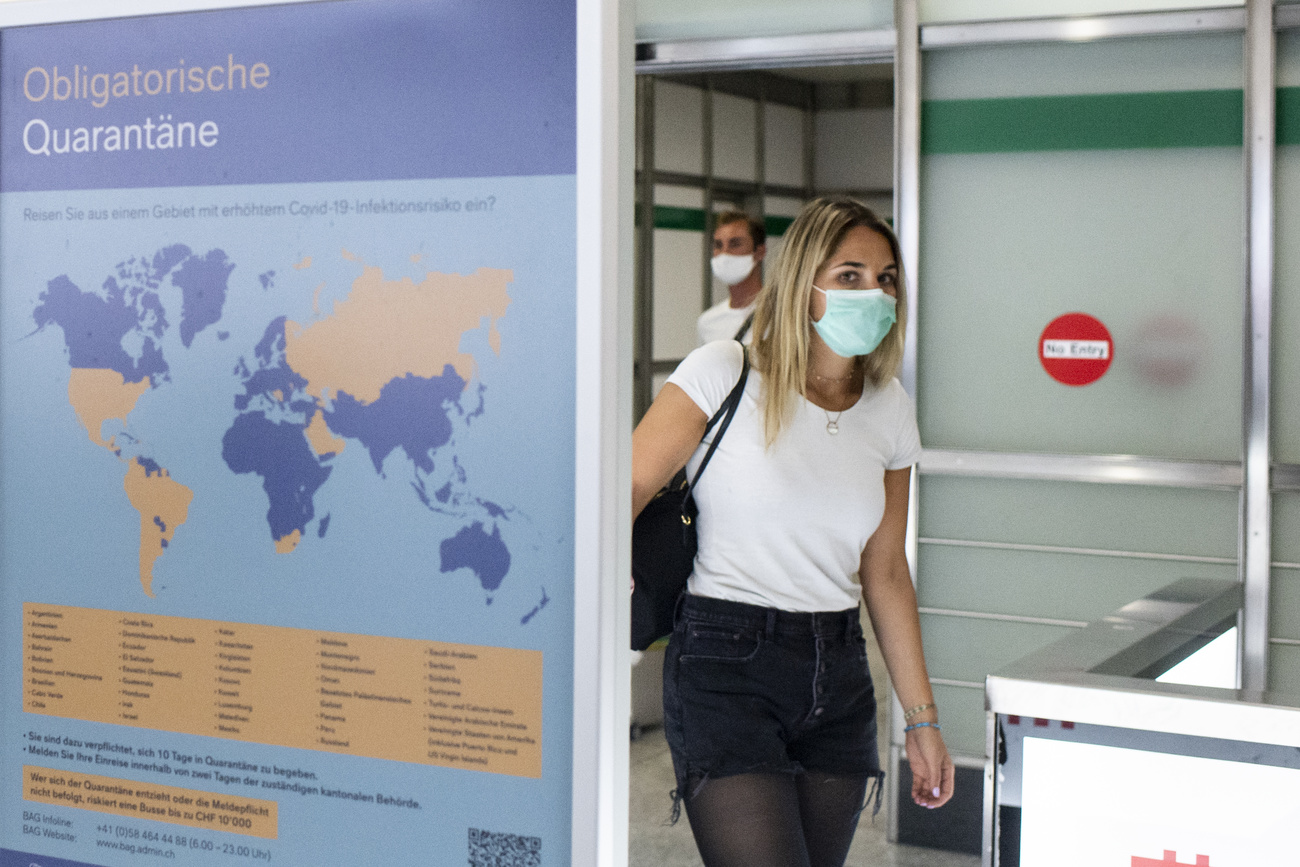
Swiss scientists to develop detector for rapid Covid screening

A project to develop a small portable device to detect the coronavirus in airports, railway stations and public spaces where rapid screening could contribute to early detection of the disease has been awarded a Swiss National Science Foundation grant.
“There is an urgent need for a set of measures to control the spread of the virus, reduce the severity of the disease in infected patients and ultimately prevent infection with effective vaccines,” said the Swiss Federal Institute of Technology Lausanne (EPFL)’s Sandrine Gerber, who is leading the research.
“With a low-cost and highly sensitive biosensor, we are proposing an approach to overcome the limitations of current testing procedures, which should eliminate the need for biomedical staff and specialized laboratory infrastructure,” she said in an EPFL statement on FridayExternal link.
Also participating in the project is Igor Stefanini from the University of Applied Sciences and Arts of Southern Switzerland (SUPSI) und Francesco Bertoni from Università della Svizzera italiana (USI).
The detector project is one of two from the EPFL to be awarded a grant. The other involves large-scale serological profiling of Covid-19 using high-throughput microfluidic immunological nano-assays, the statement said.
In all, 28 new coronavirus research projects have been funded under the SNSF Covid-19 National Research Programme launched on April 30 to “advance our understanding of the coronavirus disease 2019”.
Total grants were worth CHF18.6 million ($20.3 million), the SNSF saidExternal link earlier this week.

More
Coronavirus: the situation in Switzerland

In compliance with the JTI standards
More: SWI swissinfo.ch certified by the Journalism Trust Initiative






























You can find an overview of ongoing debates with our journalists here . Please join us!
If you want to start a conversation about a topic raised in this article or want to report factual errors, email us at english@swissinfo.ch.